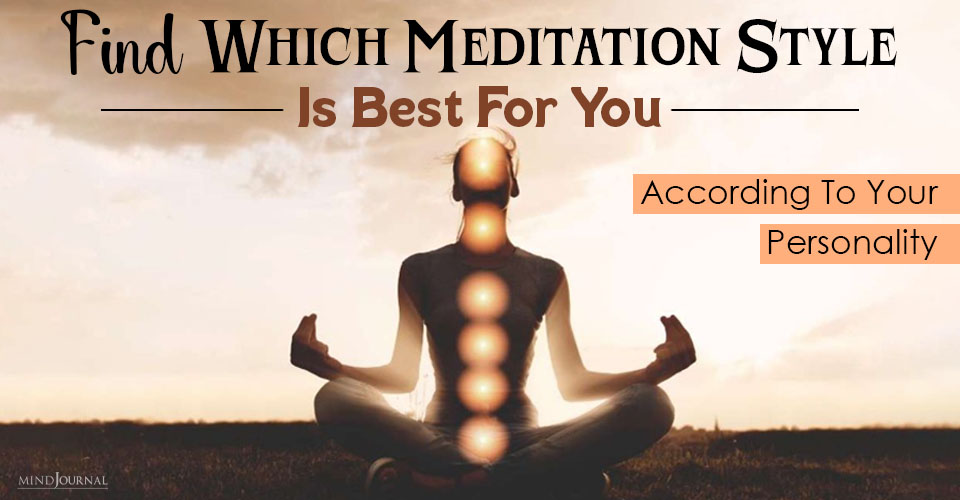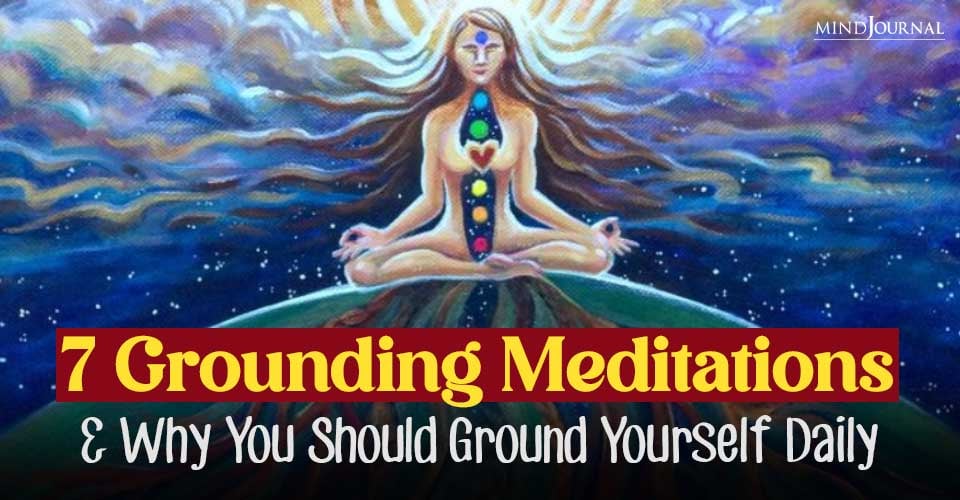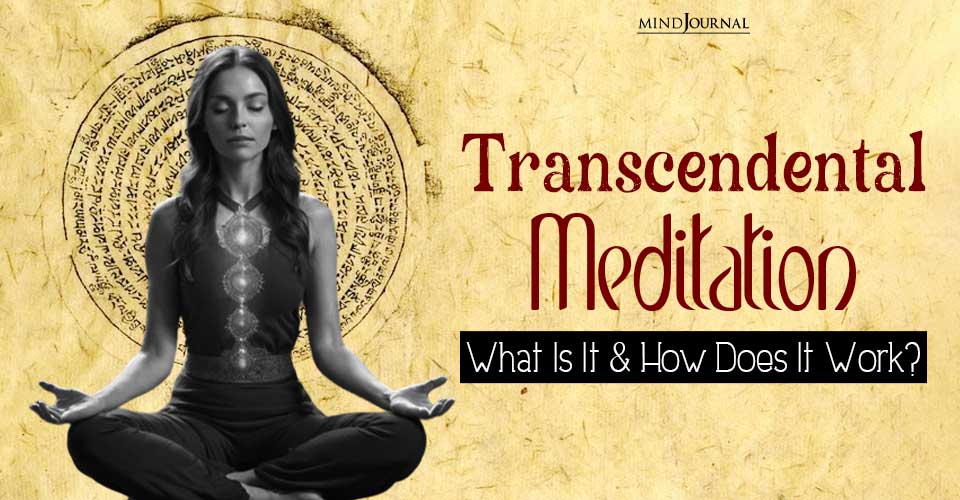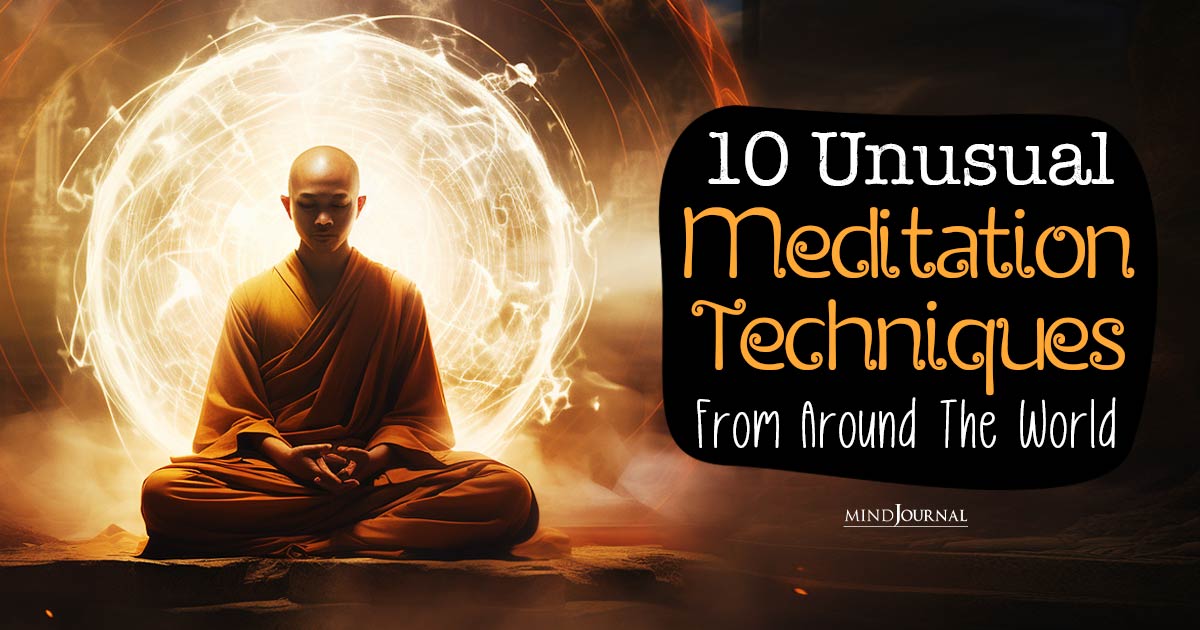We all are built different. If I talk about fitness, some people thrive on the adrenaline rush of a high-intensity interval training (HIIT) session, while others see it as their worst nightmare. Some are dedicated yogis who love to stretch and find their center, while others think yoga class is just an extended nap. Workouts are not one-size-fits-all—and, as it turns out, neither are meditation practices.
Maybe you’ve tried meditation with high hopes, only to find that it didn’t live up to the hype. If so, you’re not alone! New research suggests that it’s not just about persistence and practice—it’s also about finding the right type of meditation for you. You might be surprised to learn that there are many different styles of meditation, each working in its own way to restore your inner calm. Just as different exercise routines appeal to us in various ways, finding the right meditation style can transform your experience and make it much more enjoyable.
Today, we’ll explore which different meditation technique and find the best meditation technique for your personality.
Perfect Meditation Practices For Each Personality
For introverts: Mindfulness Meditation
If you’re an introvert, Mindfulness Meditation might be the perfect fit for you. This style of meditation requires focusing on the present moment and tuning into your thoughts and feelings without judgment. As an introvert, you likely enjoy quiet, reflective time, and Mindfulness Meditation gives you just that.

It helps you become more aware of your inner world, reduces stress, and improves your overall well-being. By simply paying attention to your breath and observing your thoughts, you can find a sense of peace and clarity that fits perfectly with your personality.
For extroverts: Wim Hof
If you’re an extrovert, you are going to love the Wim Hof Method. This meditation technique combines deep breathing, cold exposure, and commitment. It’s active and invigorating, perfect for someone who thrives on energy and excitement.
The deep breathing exercises help you feel more focused and alive, while the cold exposure can boost your mood and resilience. By sticking with this practice, you might find yourself feeling more energized and ready to tackle whatever life throws at you.
Read More: How Do Buddhists Meditate? 5 Buddhist Meditation Techniques For Inner Peace
For the easily distracted: Guided Meditation
For those who get easily distracted, guided meditation might be your best bet. In guided meditation, a narrator walks you through the process, helping you stay focused. This style is great because it provides structure and keeps your mind from wandering.
By listening to someone else’s voice, you can stay on track and actually relax, making it much easier to enjoy the benefits of meditation without getting lost in your own thoughts.
For anxious minds: Vipassana Meditation
If you have an anxious mind, Vipassana is one of the best meditation techniques for you. Vipassana, which means “insight,” focuses on observing your thoughts and feelings without judgment. This practice helps you become more aware of your mental patterns and learn to accept them, which can reduce anxiety over time.
By simply sitting quietly and paying attention to your breath and bodily sensations, you can start to understand the root causes of your anxiety and gain more control over your emotions. This mindful approach can bring a sense of peace and clarity, making it easier to manage anxious thoughts.
For restlessness: Walking
If you’re someone who feels restless and finds it hard to sit still, walking meditation might be perfect for you. Instead of sitting quietly, you walk slowly and mindfully, paying attention to each step and your surroundings. This type of meditation helps you stay active while still calming your mind.
It’s a great way to reduce stress and anxiety, and you can do it anywhere—whether it’s a park, your neighborhood, or even your backyard. Plus, it combines the benefits of gentle exercise with mindfulness, making it a win-win for both your body and mind.
For type A’s: Breath of fire
For all the Type A personalities out there, the Breath of Fire meditation is a perfect match! This technique involves quick, rhythmic breaths that energize your body and clear your mind. It’s great for those who are always on the go and need a boost without slowing down.
By practicing Breath of Fire, you can release built-up tension and stress, helping you feel more focused and ready to tackle whatever comes your way. Just find a comfortable position, take a deep breath, and start breathing quickly through your nose while pulling your belly in. It’s a powerful way to recharge and get back to feeling like your best self!
For type B’s: Tai Chi
If you’re a Type B personality, Tai Chi might be just the meditation style you need. Tai Chi is a gentle form of exercise that combines slow, flowing movements with deep breathing and relaxation. It’s like a moving meditation that helps you calm your mind while you get a bit of exercise.
For Type B personalities, who tend to be easygoing and appreciate a relaxed pace, Tai Chi can be a perfect match. It helps reduce stress, improves balance, and promotes a sense of inner peace—all while being a low-impact way to stay active. Plus, the smooth, graceful movements are easy on the body and soothing for the mind.
Read More: 10 Important Weekly Reflection Questions You Need To Ask Yourself
For neurotics: Tapping
If you’re someone who tends to worry a lot or feels anxious often, tapping might be a great meditation style for you. Tapping, also known as Emotional Freedom Technique (EFT), involves gently tapping on specific points on your body while focusing on your worries or stresses.

This technique can help calm your mind by reducing anxiety and clearing out negative emotions. By combining physical tapping with mental focus, tapping helps you feel more relaxed and in control, making it easier to handle your daily stressors.
For pessimists: Loving-Kindness Meditation
If you tend to be a pessimist, Loving-Kindness Meditation might be just what you need! This style focuses on sending positive thoughts and well-wishes to yourself and others, which can help shift your mindset. Instead of dwelling on negative feelings, you’ll practice wishing happiness, health, and peace to yourself, loved ones, and even people you find challenging.
By regularly engaging in this practice, you can open your heart, foster compassion, and gradually transform your outlook on life. It’s a gentle way to counteract negativity and promote a more positive perspective!
For optimists: Affirmation Meditation
For optimists, Affirmation Meditation is a fantastic choice! This style focuses on repeating positive statements or affirmations to boost your mood and mindset. By telling yourself things like “I am capable” or “I attract joy,” you can reinforce positive beliefs and push away negative thoughts. It helps create a more uplifting outlook on life, making you feel more confident and motivated.

To practice, find a quiet spot, take a few deep breaths, and start repeating your chosen affirmations either out loud or in your mind. It’s a simple yet powerful way to nurture your positive spirit and stay focused on the good things in life.
Final Thoughts
There are no strict rules when it comes to meditation—it’s all about finding what helps you focus and calm your mind. The ultimate goal is to feel your best and become your best self. So, give these specific meditation methods a try based on your personality type. If one doesn’t resonate with you, don’t hesitate to move on to the next! It’s all about trial and error until you discover what works best for you. Good luck, and we’d love to hear about your experiences in the comments below!
Read More: One Meditation Taboo You Should Break Right Now!
Frequently Asked Questions (FAQs):
Can meditation help with anxiety for sensitive personalities?
Yes! Gentle techniques like loving-kindness meditation or guided imagery meditation can be particularly soothing for sensitive personalities, helping them manage anxiety and cultivate self-compassion.
How do I know if a meditation style is right for me?
It’s all about experimenting! Try different styles and see how you feel after each session. If one doesn’t resonate, don’t hesitate to try another until you find what works best for you.
Are there quick meditation techniques for busy personalities?
Definitely! Busy individuals can benefit from short, focused practices like breath awareness or gratitude journaling, which can be done in just a few minutes throughout the day.










Leave a Reply